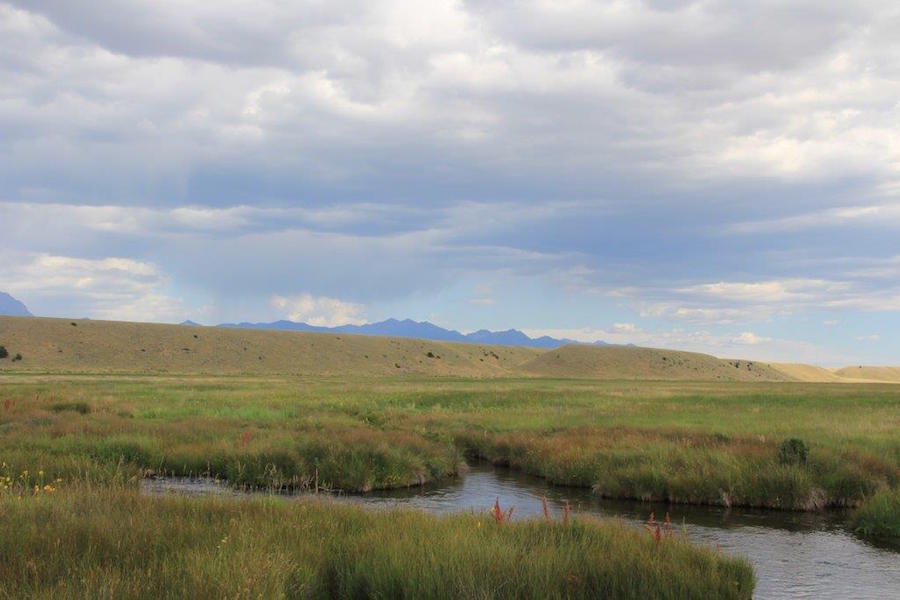WOTUS = Waters Of The United States
The Supreme Court ruling in the Hawkes case described below may not, at first blush, seem to offer much direct relief in respect to over-reaching 'wetlands protection' takings here in Whatcom County. But it may have some bearing on some of the sweeping Corps of Engineers actions that have been taken locally. For example, the Corps buddied-up with the Lummi tribe in establishing their "wetlands and habitat mitigation bank" in 2012. Does its large "WOTUS" area meet criteria that would withstand scrutiny in a federal court? Those who find themselves in the crosshairs, forced to buy 'shares' in the mitigation bank to make improvements to or simply use their property within this huge area that's been turned into a piggy-bank, might be able to seek judicial review given this Hawkes decision. Also see this Pacific Legal Foundation synopsis of the case.
Property and Environment Research Center
re-post by Professor Jonathan Adler
5/31/16
Originally appeared at the Washington Post's Volokh Conspiracy blog on May 21, 2016.
This morning, the Supreme Court issued a single opinion in an argued case that should be of particular interest to private landowners and administrative law aficionados: U.S. Army Corps of Engineers v. Hawkes. In Hawkes, a unanimous court concluded that private landowners may challenge a federal agency’s conclusion that a given piece of land is subject to regulation under the Clean Water Act (CWA) once such a “jurisdictional determination” has been made. With this ruling, the court handed private landowners a small but significant victory.
Here’s some background. Under the CWA, it is illegal to “discharge” a “pollutant” into the “waters of the United States” without a federal permit. These terms are defined quite broadly, so that the deposit of soil, dirt or clean fill may constitute the “discharge” of a “pollutant.” This means that a private landowner who seeks to build on his or her property, perhaps by building a home, must obtain a federal permit if (and this is the key part) that land is considered part of the “waters of the United States.” How would a piece of land be considered “waters”? Because the federal government has defined the “waters of the United States” to include wetlands. If such lands are sufficiently connected to other waters, such as rivers and streams, they are subject to the CWA’s permitting requirements.
For an individual landowner, it is not always clear whether a given piece of land is subject to the CWA regulation. For this reason, landowners may seek a jurisdictional determination from the federal government (specifically, the U.S. Army Corps of Engineers), in order to find out whether federal regulators believe a permit is required. If the Army Corps says “no,” then the landowner is in the clear (at least under the CWA). If the Corps says “yes,” then the landowner must obtain a permit before, say, placing fill on the property.
Under today’s decision, a jurisdictional determination is a final agency action that is subject to judicial review. This is because once the Army Corps determines that a given parcel is subject to regulation under the CWA, it has reached a final conclusion about its jurisdiction, and this decision has clear consequences. If the Corps concludes it has no jurisdiction, the landowner can be sure the he or she will not risk federal prosecution for developing the property without a permit. If the Corps concludes it does have jurisdiction, then the landowner knows that developing the property without a permit is, in the view of the agency, illegal. Further, the court concluded, once an affirmative jurisdictional determination has been made, a landowner has no meaningful alternative to judicial review to contest the agency’s decision.
What this means, in practical terms, is that landowners have greater ability to determine whether their property is subject to federal regulation and to challenge potentially overbroad assertions of jurisdiction. If the Army Corps tells a landowner that a given property is subject to CWA regulation, and the landowner disagrees, the landowner may challenge the Army Corps’ determination right away. Had the federal government prevailed, however, a landowner faced with an unfavorable jurisdictional determination would have had to seek a federal permit (which can be costly and time-consuming, and its own source of uncertainty) or risk prosecution by developing the property without a permit.
Chief Justice John Roberts wrote the opinion for the court. Three other justices wrote concurrences: Justice Anthony Kennedy (joined by Justices Samuel Alito and Clarence Thomas), Justice Ruth Bader Ginsburg and Justice Elena Kagan.
Kennedy’s concurrence stressed that even with the court’s decision (and its prior decision in Sackett, which I discussed here and here), the application of the CWA to private property “continues to raise troubling questions regarding the Government’s power to cast doubt on the full use and enjoyment of private property throughout the nation.”
Also, of particular interest to administrative law types, Kagan and Ginsburg expressed differing opinions on the effect of Bennett v. Spear on finality doctrine — an interesting question to be resolved another day.
Recommended Reading:
Redefining the Waters of the United States: The EPA’s new water rule could discourage private conservation efforts.


 RSS Feed
RSS Feed
